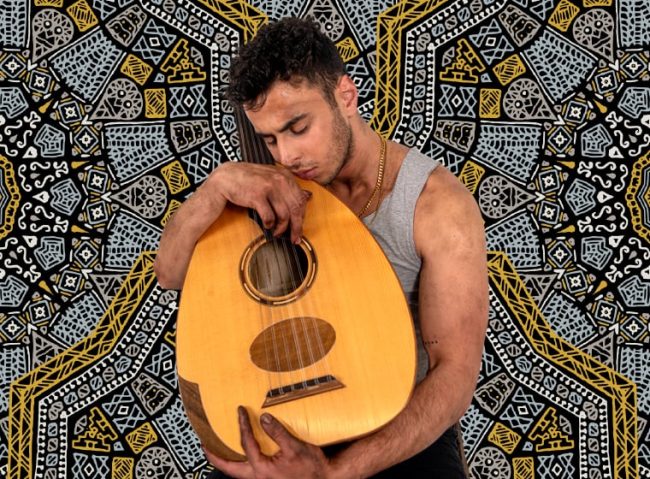Saturday July 27, 2024
National Theatre of Parramatta
Review by Paul Neeson (Arts Wednesday)
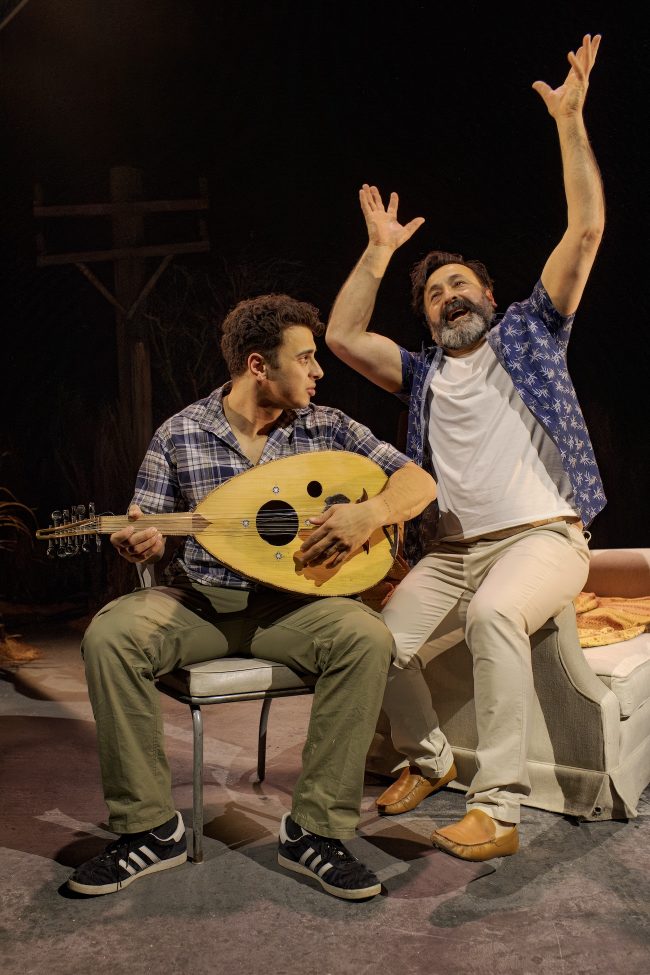
In his new play, Karim, James Elazzi explores the frictions inherent to age, race, sexuality and identity. It is a dark play dealing with themes of family disfunction, drug addiction, loneliness and the breakdown of relationships, but Elazzi can’t resist the (very) occasional comedic one-liner. That is the power of his writing.
Karim (Youssef Sabet) and Beth (Alex Malone) are both floundering twenty-somethings in the rural town of Tahmoor and desperate to get out. Poverty, drugs and family responsibilities bind them to the town as they sit on the train station fantasising about a life beyond. What propels the drama are the intense relationships between Karim and his father Joe (Andrew Cutcliffe) and Beth and her mother Kaye (Jane Phegan).
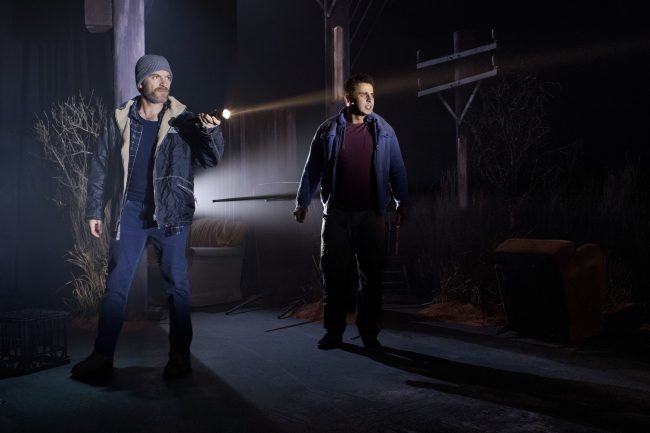
Cutcliffe brings a maturity to the cast portraying with absolute conviction a single father who loves his – as it turns out – gay son, and will do anything to protect him and create a life for him. Unfortunately it is not necessarily the life Karim wants. Malone after a slow start is convincing as the daughter trying to deal with her mother’s unpredictable contrariness accentuated and brought into alarming focus during her many drug induced psychoses – in truth her mother’s drug addiction threatens to ruin them both. Conflicting emotions gave her much to play with: empathy, to suffering and even hate are palpable in her every utterance and look.
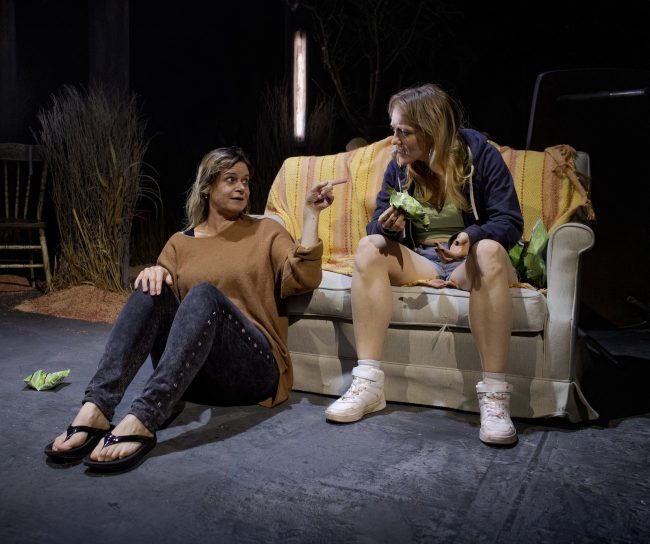
Then along comes Abdul (George Kanaan), an older gay Lebanese man that throws Karim a potential lifeline in the form of an oud, an ancient Arab lute. This very instrument was what saved Abdul from the Lebanese Civil War and he sees the same opportunity for Karim. The oud becomes the symbol of hope, cultural acceptance and an escape to a new world as Abdul teaches him how to play and become one with the instrument. There are some tender moments between the two mismatched lovers, but we are never truly convinced about Karim’s carnal devotion, nor is Abdul. The oud also becomes a symbol of friction when Joe (who has rejected his own Lebanese heritage) intervenes with threats of violence, accusing Abdul of corrupting his son.
The small stage of the Lennox Theatre seemed overcrowded with sets (James Brown) that were constantly being moved to create new scenes. The costumes were simple and effective. Frankie Clarke’s lighting design was suitably dark to create the sombre tone of the play. And Aimee Falzon’s sound design, again simple and effective.
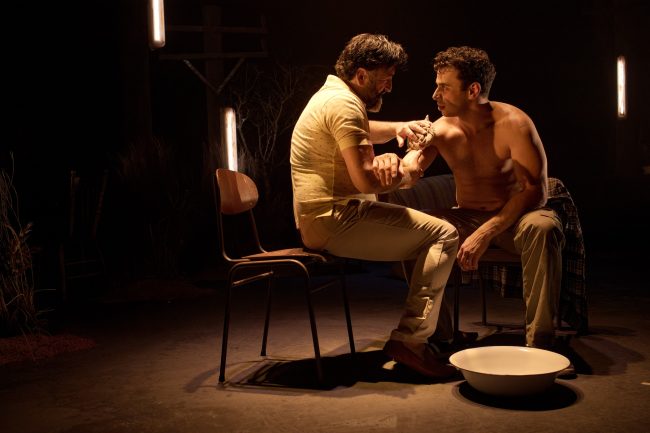
This was Elazzi’s first time as co-director along with the more seasoned director and dramaturg, Shane Anthony. I felt there were some gaps in the direction of the performers that might improve as the season progresses. Karim’s character is complex and is emotionally involved in almost every scene: he has a close friend with her own issues; a protective loving father who wants different and maybe even selfish outcomes for him; and an older lover who’s motivation is being perhaps unfairly questioned. Sabet does well enough to try to bring all these opposing and mixed emotions together, an incredible array of contrasting forces, it’s a hard ask, a task difficult for even the most seasoned actor. It was Malone and Cutcliffe who were the standout performances (ably supported by Phegan and and Kennan) with both hitting the exact emotional pitch in just the right moments.
In this world premiere, the National Theatre of Parramatta produced a challenging and captivating experience, the time went quickly, with many questions left hanging to keep you thinking about the play on the way home. There is much beauty in its rawness, a must see, but with more time and the advantage that comes with repeat performance, it’s a play that one envisages will be performed over and over again so that Karim becomes the next hit production in Elazzi’s growing oeuvre. I can’t wait to see it again, but before it becomes a theatre icon you must catch it now to see from whence it came.
Listen to a recent interview with Andrew Cutcliffe below.
